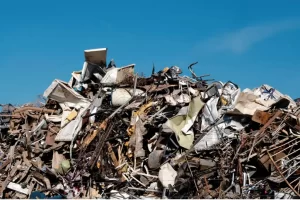How Has Covid-19 Affected the Scrap Metal Industry?
It’s fair to say that the Covid-19 pandemic touched everyone in some way. While it was clearly first and foremost a public health crisis of which we’ve never seen before, it also had a devastating impact on economies and businesses all around the world.
Almost every sector was impacted with many still feeling the effects to this day. The scrap metal industry was no different with businesses in the sector having to adapt in order to keep employees and customers safe.
While the worst of the pandemic seems to be behind us as we head into the second half of 2022, the impact it had can still be felt. In this article the team at Hill Metal Recycling will take a look at the state of the industry two years on from the start of the pandemic, and what the future of scrap metal looks like.
Fall in demand
We all remember those early days of lockdown at the start of 2020. Confined to our homes, only allowed out for a small amount of exercise each day and with Netflix’s latest offering as our main source of entertainment, it was a strange time.
Many businesses had to close their doors with no real sense of when they’d be opening again. This was also true of many scrap metal factories, with plants having to close throughout Europe due to Covid-19 restrictions. This resulted in a fall in both production and demand for scrap metal.
Aluminium is a good example of this, with the price plummeting in the UK due to almost all British aluminium smelters having to close down as a direct consequence of the pandemic. In fact, scrap metal has become so rare in some countries that the likes of South Africa and the United Arab Emirates have even temporarily banned the export of it.
Recycling supply chain issues
Since the pandemic, the rate of scrap metal recycling has dropped significantly. Initially, this was due to the closure of recycling sites and Covid-19 restrictions imposed once they reopened. This resulted in less waste being processed and therefore issues in supply chains.
Many types of scrap metal are recycled and repurposed into vital resources that support a whole host of areas and public services. This includes materials that are used by the NHS. As well as this, recycling ensures that metal is kept out of landfill, meaning it’s better for the environment, too.
What does the future for scrap metal look like?
So, now we’ve considered how the industry has shifted since the start of the pandemic, what hope is there for the future?
Well, we’re already beginning to see the demand for certain types of scrap metal begin to rise. For instance, the global demand for copper has started to increase, even though supply issues remain disrupted. In the UK, while there has been a slow return to normality, many traders are still holding on to their excess scrap rather than bringing it to scrap metal facilities. This is primarily due to the fact that many scrap metal companies are unable to offer high prices at the moment due to the economic hit they’ve received from Covid-19. This means traders are hoarding their metal until the prices increase, but this means the supply chain is suffering instead.
However, there is optimism for the future. Now all restrictions have been lifted, the industry is managing to get back on its feet. There have been many innovations and developments to enhance waste collection that look set to be introduced in the future, creating new jobs and encouraging a more sustainable environment.
At Hill Metal Recycling, we offer an all-encompassing scrap metal service for both domestic and commercial customers. This includes handling ferrous and non-ferrous metals. Based in Harlow, Essex we cover many of the surrounding areas and can even collect metal directly from your location if you prefer. Contact our team today to find out more.





